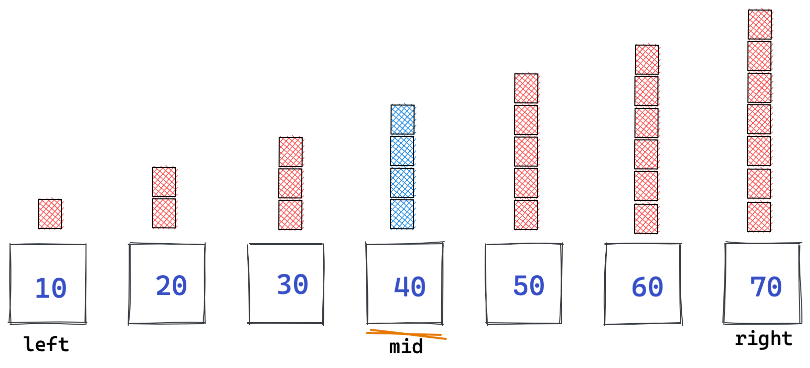 Problem
Problem
There is an integer array nums sorted in ascending order (with distinct values).
Prior to being passed to your function, nums is possibly rotated at an unknown pivot index k (1 <= k < nums.length) such that the resulting array is nums[k], nums[k+1], ..., nums[n-1], nums[0], nums[1], ..., nums[k-1] (0-indexed). For example, [0,1,2,4,5,6,7] might be rotated at pivot index 3 and become [4,5,6,7,0,1,2].
Given the array nums after the possible rotation and an integer target, return the index of target if it is in nums, or -1 if it is not in nums.
You must write an algorithm with O(logn) runtime complexity.
Example 1:
Input: nums = [4,5,6,7,0,1,2], target = 0
Output: 4
Example 2:
Input: nums = [4,5,6,7,0,1,2], target = 3
Output: -1
Example 3:
Input: nums = [1], target = 0
Output: -1
Source: Leetcode
Constraints:
1 <= nums.length <= 5000
-104 <= nums[i] <= 104
All values of nums are unique.
nums is an ascending array that is possibly rotated.
-104 <= target <= 104
How to solve this interesting problem?
If a sorted array is not rotated, it is easy to find a target value using Binary Search algorithm. Because, we know the target value will be somewhere between the first and the last element of the array. But if we rotate the array, the array no longer remains sorted, right?


Top comments (0)